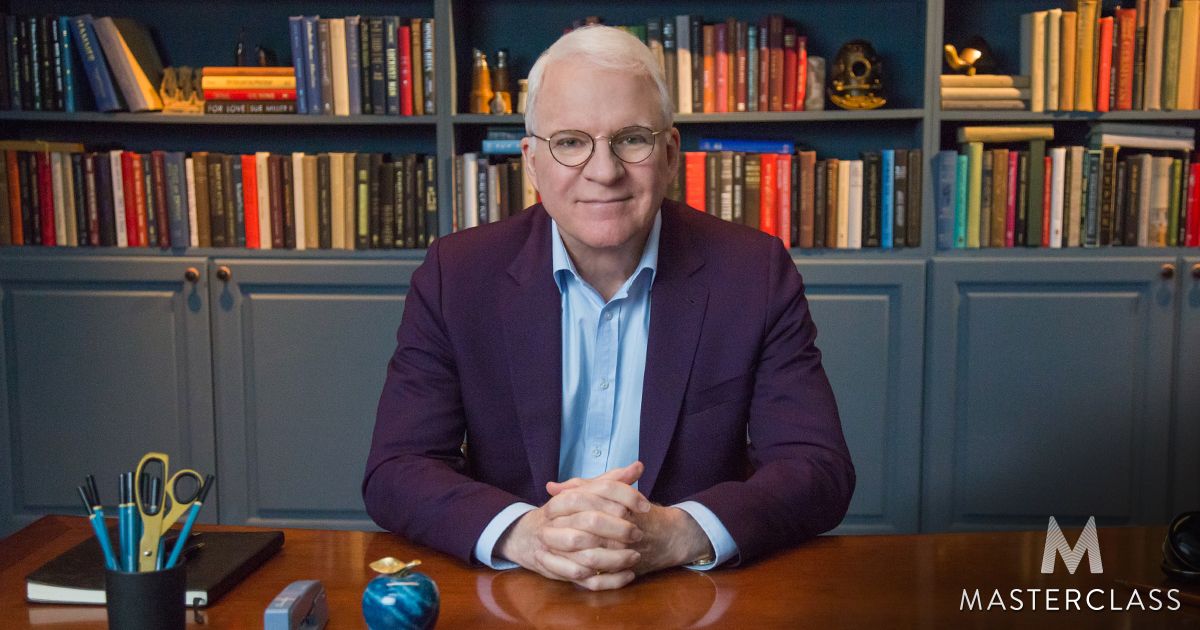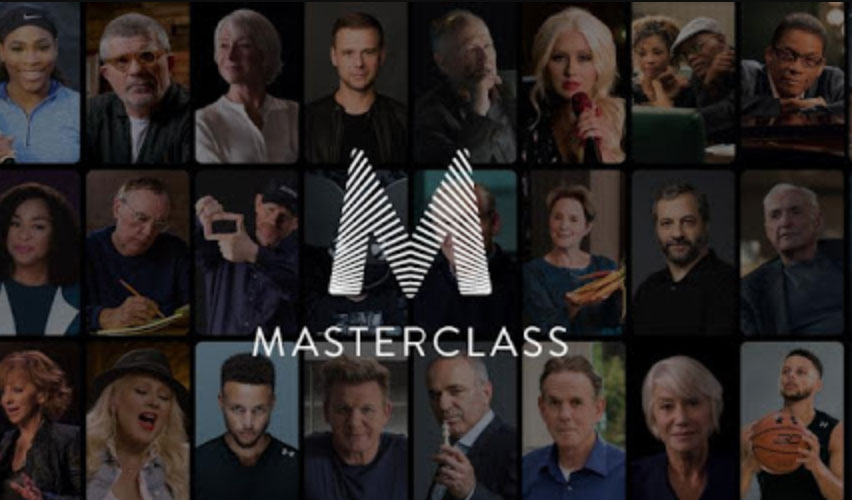About
Masterclass is an online education platform that offers classes taught by world-renowned experts in various fields, such as film, writing, music, cooking, sports, and more. The platform was founded in 2015 by entrepreneur David Rogier and inventor Aaron Rasmussen.
Each class typically consists of a series of pre-recorded video lessons that cover a specific topic or skill. In addition to the video content, students also have access to a class workbook, interactive assignments, and a community of fellow learners. The classes are designed to be accessible to learners of all levels, from beginners to advanced students.
Some of the notable instructors on Masterclass include Martin Scorsese (film-making), Margaret Atwood (writing), Gordon Ramsay (cooking), Serena Williams (tennis), and Neil deGrasse Tyson (science).
To access the classes on Masterclass, users need to purchase a subscription, which gives them unlimited access to all of the classes on the platform. The subscription also includes features like offline viewing, the ability to sync progress across devices, and a 30-day money-back guarantee.
The Pros and Cons of Attending a Master Class

Attending a master class can provide many benefits, but there are also some drawbacks to consider. Here are some of the pros and cons of attending a master class:
Pros:
- In-depth learning: Master classes provide a focused and structured learning experience that can help learners gain an in-depth understanding of a specific topic.
- Expert guidance: Master classes are often taught by experts in the field who can offer valuable insights, advice, and guidance to learners.
- Networking opportunities: Master classes provide an opportunity to connect with other learners who share similar interests and passions, providing a valuable networking opportunity.
- Access to resources: Master classes often provide access to a range of resources, including textbooks, articles, research papers, and other materials that can help learners deepen their understanding of the subject.
- Career advancement: Master classes can help learners develop the skills and knowledge needed to advance their careers, providing a competitive edge in the job market.
Cons:
- Cost: Master classes can be expensive, and not everyone may be able to afford the tuition or fees associated with attending.
- Time commitment: Master classes can require a significant time commitment, which may not be feasible for everyone.
- Limited availability: Master classes may not be offered in all locations or on all topics, which can limit accessibility for some learners.
- No guarantee of success: Attending a master class does not guarantee success, and learners may still need to work hard and apply what they have learned to achieve their goals.
- Quality of instruction: The quality of instruction in a master class can vary, and learners may not always receive the level of guidance or support they expect.
In summary, attending a master class can provide many benefits, but there are also some drawbacks to consider, such as cost, time commitment, and limited availability. It’s important to weigh these factors carefully before deciding whether a master class is right for you.
How to Create an Effective Master Class

Creating an effective master class requires careful planning and attention to detail. Here are some steps you can follow to create an effective master class:
- Define your topic: Choose a topic that you are passionate about and that you have expertise in. Make sure the topic is relevant to your audience and that it is something they are interested in learning.
- Identify your target audience: Determine who your target audience is and what their needs and goals are. This will help you tailor your content and teaching approach to meet their specific needs.
- Develop an outline: Create a detailed outline of your master class that includes the key topics, subtopics, and learning objectives. This will help you stay organized and ensure that you cover all the necessary material.
- Create engaging content: Use a variety of teaching methods and tools to create engaging content that appeals to different learning styles. This may include videos, images, case studies, interactive exercises, and quizzes.
- Provide actionable insights: Make sure your content provides actionable insights and practical advice that your audience can apply in their own lives or work. Use real-life examples and case studies to illustrate your points.
- Encourage interaction: Encourage interaction and engagement with your audience by using interactive tools like chat boxes, polls, and Q&A sessions. This will help keep your audience engaged and allow them to ask questions and share their own experiences.
- Follow up with resources: Provide additional resources and materials, such as worksheets, reading lists, and reference materials, to help your audience continue learning and applying the insights they gained from your master class.
By following these steps, you can create an effective master class that provides value to your audience and helps them achieve their goals.
How To Develop a Master Class Outline
Developing a master class outline requires careful planning and organization. Here are some steps you can follow to develop an effective master class outline:
- Define your topic: Choose a topic that you are knowledgeable and passionate about. Make sure the topic is relevant to your target audience and aligns with their needs and interests.
- Identify learning objectives: Determine what you want your audience to learn from your master class. Identify the key knowledge, skills, and insights you want them to gain by the end of the class.
- Break down the topic: Break down the topic into key subtopics and themes. Organize these subtopics into a logical flow that builds upon each other and leads to achieving the learning objectives.
- Determine the format: Decide on the format and duration of your master class. Consider using a combination of video lessons, written materials, exercises, and quizzes to engage your audience and reinforce the key concepts.
- Create an outline: Create a detailed outline of your master class that includes the key subtopics, themes, and learning objectives. Organize the subtopics into sections and arrange them in a logical flow. Each section should include the key points you want to cover, supporting examples, and any resources or materials needed.
- Add interactive elements: Incorporate interactive elements into your master class outline, such as quizzes, polls, and discussion questions. This will help keep your audience engaged and encourage them to interact with the content.
- Review and revise: Review your master class outline and revise it as needed. Make sure the outline is clear, concise, and easy to follow. Test your master class outline with a few beta testers to make sure it achieves the intended learning objectives.
By following these steps, you can develop a master class outline that effectively communicates your knowledge and expertise while engaging and educating your audience.
How to Become an Expert in Your Field: A Master Class
Becoming an expert in your field requires dedication, hard work, and continuous learning. Here is an outline for a master class on how to become an expert in your field:
I. Introduction
- Introduce the concept of becoming an expert in your field
- Explain why it is important to become an expert
- Share your personal experience and success story
II. Define Your Field
- Define the field you want to become an expert in
- Explain the scope of the field
- Highlight the importance of identifying your field
III. Develop Your Knowledge Base
- Identify key resources for gaining knowledge in your field
- Share best practices for reading and staying up-to-date on developments in your field
- Discuss how to apply critical thinking and analysis to your learning
IV. Build Your Skills
- Identify the key skills needed to excel in your field
- Provide guidance on how to develop and hone those skills
- Offer strategies for applying those skills to real-world scenarios
V. Cultivate Your Professional Network
- Explain the importance of building a professional network
- Provide tips for building relationships within your field
- Share strategies for leveraging your network to advance your career
VI. Pursue Continuous Learning
- Discuss the importance of continuous learning and professional development
- Identify resources for continuing education
- Provide guidance on how to incorporate continuous learning into your routine
VII. Conclusion
- Recap the key points covered in the master class
- Offer advice on how to apply the strategies discussed
- Encourage learners to continue their journey to becoming an expert in their field
By following this outline, you can create a master class that provides practical advice and guidance on how to become an expert in your field. The class will help learners identify the knowledge, skills, and resources needed to excel and provide actionable steps to help them achieve their goals.
The Benefits of Taking a Master Class in a Specific Topic
Taking a master class in a specific topic can offer a wide range of benefits. Here are some of the key benefits of taking a master class:
- In-depth learning: Master classes provide a comprehensive and in-depth understanding of a specific topic. They allow learners to explore the nuances and complexities of a subject in a structured and focused way.
- Expert guidance: Master classes are typically led by experts in the field who have deep knowledge and experience. Learners can benefit from the guidance, insights, and advice of these experts, gaining valuable perspectives and insights that can help them advance their knowledge and skills.
- Networking opportunities: Master classes provide an opportunity to network with other learners who share similar interests and passions. Learners can exchange ideas, collaborate, and connect with others who share their enthusiasm for the subject.
- Access to resources: Master classes often provide access to a wide range of resources, including textbooks, articles, research papers, and other materials that can help learners deepen their understanding of the subject.
- Career advancement: Master classes can help learners develop the skills and knowledge needed to advance their careers. They can provide a competitive edge in the job market and help learners stand out to potential employers.
- Personal growth: Master classes can offer a sense of personal growth and fulfillment. Learners can explore their passions and interests in a structured and meaningful way, gaining a sense of accomplishment and satisfaction.
In summary, taking a master class in a specific topic can offer a range of benefits, from in-depth learning and expert guidance to networking opportunities and career advancement. It can be a valuable investment in one’s personal and professional development.
FAQ
Certainly! Here are some common FAQs related to masterclasses:
Q: What is a masterclass?
A: A masterclass is an educational session or course that is taught by an expert or master in a specific field. The course is designed to provide in-depth learning and guidance to participants.
Q: Who can attend a masterclass?
A: Masterclasses are typically open to anyone who is interested in the subject matter. However, some masterclasses may have specific prerequisites or requirements, such as prior experience or knowledge in the field.
Q: What topics are covered in a masterclass?
A: Masterclasses can cover a wide range of topics, from music and art to business and technology. The topics covered will depend on the expertise of the instructor and the focus of the course.
Q: What are the benefits of attending a masterclass?
A: Attending a masterclass can provide many benefits, including in-depth learning, expert guidance, networking opportunities, access to resources, and career advancement.
Q: How much does it cost to attend a masterclass?
A: The cost of attending a masterclass can vary widely depending on the topic, instructor, and location. Some masterclasses may be free, while others can cost hundreds or thousands of dollars.
Q: How long do masterclasses typically last?
A: The length of a masterclass can vary depending on the topic and the instructor. Some masterclasses may be only a few hours long, while others can last several days or weeks.
Q: How can I find a masterclass to attend?
A: You can find masterclasses online through websites that specialize in online learning, such as MasterClass or Skillshare. You can also search for local masterclasses in your community through community centers, libraries, or colleges and universities.
Conclusion

In conclusion, masterclasses can be a valuable learning experience for those looking to gain in-depth knowledge and expertise in a specific field. They offer the opportunity to learn from experts in the field, access valuable resources, and network with others who share similar interests. However, attending a masterclass can be costly and time-consuming, and the quality of instruction may vary. It’s important to carefully weigh the pros and cons before deciding whether a masterclass is right for you, and to choose a reputable course taught by a knowledgeable instructor. With careful consideration and dedication, attending a masterclass can help you achieve your learning goals and advance your career.



0 Comments